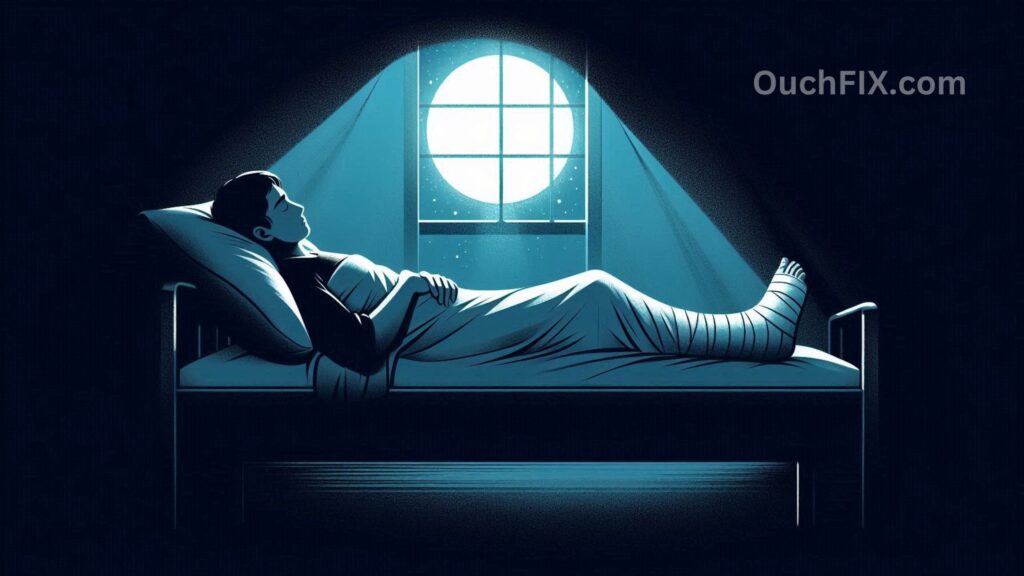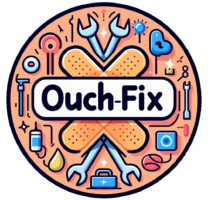Most people know that sleep is important, but many underestimate just how crucial it is—especially when it comes to healing. Whether you’re recovering from an injury, surgery, or intense physical activity, sleep is your body’s secret weapon. It’s not just about feeling rested; it’s about giving your body the time and resources it needs to repair itself, reduce stress, and get you back to full strength faster.
Why Sleep Helps You Heal
Sleep isn’t just downtime for your brain—it’s when your body goes into repair mode. During sleep, your muscles rebuild, tissues regenerate, and growth hormones are released to promote healing. Most adults need 7–8 hours of sleep each night, but if you’re injured or recovering from surgery, your body may demand 9–10 hours to fully recover.

Without enough sleep, recovery slows, your immune system weakens, and your mood can take a hit. Prioritizing rest is not a luxury—it’s an essential part of any recovery plan.heal from injuries.
Sleep Helps Lower Stress
Sleep also regulates stress hormones, particularly cortisol. High cortisol levels can break down tissues for energy—counteracting your body’s repair processes. Adequate sleep lowers cortisol, allowing growth hormones to work efficiently and tissue repair to proceed without interference.

Additionally, sleep improves mood, cognitive function, and motivation, which are vital during recovery. Feeling stressed or irritable can make it harder to stick to rehabilitation routines or exercise programs, so good sleep supports both your body and your mind.
Expert Insight: According to Harvard Medical School, sleep directly influences your immune system, which is critical for wound healing and overall recovery.urgery, or intense workouts. Ensuring quality sleep can literally speed up how quickly your body heals.

Also Read: Which Natural Supplements Help Ease Muscle Soreness?
Do You Need More Sleep When You’re Injured?
Absolutely. When your body is repairing itself, it requires more growth hormones—and these are primarily released during deep sleep cycles, which occur roughly every 90 minutes.

Extra sleep = more deep sleep phases = more growth hormones = faster recovery.
Listen to Your Body: Fatigue during the day is your body’s way of signaling that it needs rest. Ignoring this can slow healing and even increase the risk of complications.
Tips for Better Sleep
Sleep may be essential, but many of us struggle to get enough. Here are practical, evidence-based strategies to improve sleep quality:

- Stick to a Schedule – Go to bed and wake up at the same time every day to regulate your body’s natural rhythm.
- Limit Naps – Short naps (max 90 minutes) are helpful; avoid late afternoon naps.
- Monitor Caffeine Intake – Reduce coffee, tea, and energy drinks after mid-afternoon.
- Moderate Alcohol Consumption – Alcohol disrupts sleep cycles, reducing deep sleep.
- Avoid Late-Night Snacking – Heavy or junk foods can interfere with falling asleep.
- Create a Sleep-Friendly Environment – Keep your bedroom dark, quiet, and cool.
- Consider Meditation or Relaxation Techniques – Guided meditation, deep breathing, or progressive muscle relaxation can help you fall asleep faster. Apps like Headspace or Calm are great resources.
- Limit Screen Time – Avoid phones, TVs, and computers at least an hour before bed to reduce blue light exposure.
- Be Mindful of Pets – Pets can disturb sleep if they share your bed.
Pro Tip: Even small adjustments—like keeping your bedroom dark and quiet—can improve your deep sleep, giving your body more time for repair.

Also Read: What Practices Aid Recovery After a Sprain?
Final Thoughts
Sleep is one of the most powerful tools for recovery. It allows your body to repair, reduces stress, strengthens immunity, and improves mood—all of which accelerate healing. Prioritizing sleep during injury or illness isn’t optional—it’s essential.
Take Action: Tonight, commit to a consistent sleep routine and make your recovery a top priority. Your body will thank you.
FAQs About Sleep and Recovery
Q1. How does sleep affect injury recovery?
Sleep promotes tissue repair, hormone release, and immune system efficiency—all critical for faster recovery.
Q2. Can too little sleep delay healing?
Yes. Chronic sleep deprivation reduces growth hormone production and weakens immunity, slowing the recovery process.
Q3. How much sleep is ideal during recovery?
Most adults need 7–8 hours, but recovery may require 9–10 hours to ensure sufficient deep sleep cycles.
Q4. Does REM sleep help physical recovery?
Indirectly, yes. REM sleep supports brain function, emotional health, and stress reduction, all of which aid overall healing.
Q5. Are naps beneficial during recovery?
Short naps (20–90 minutes) can supplement nighttime sleep, but avoid late-day naps that may interfere with nighttime rest.





